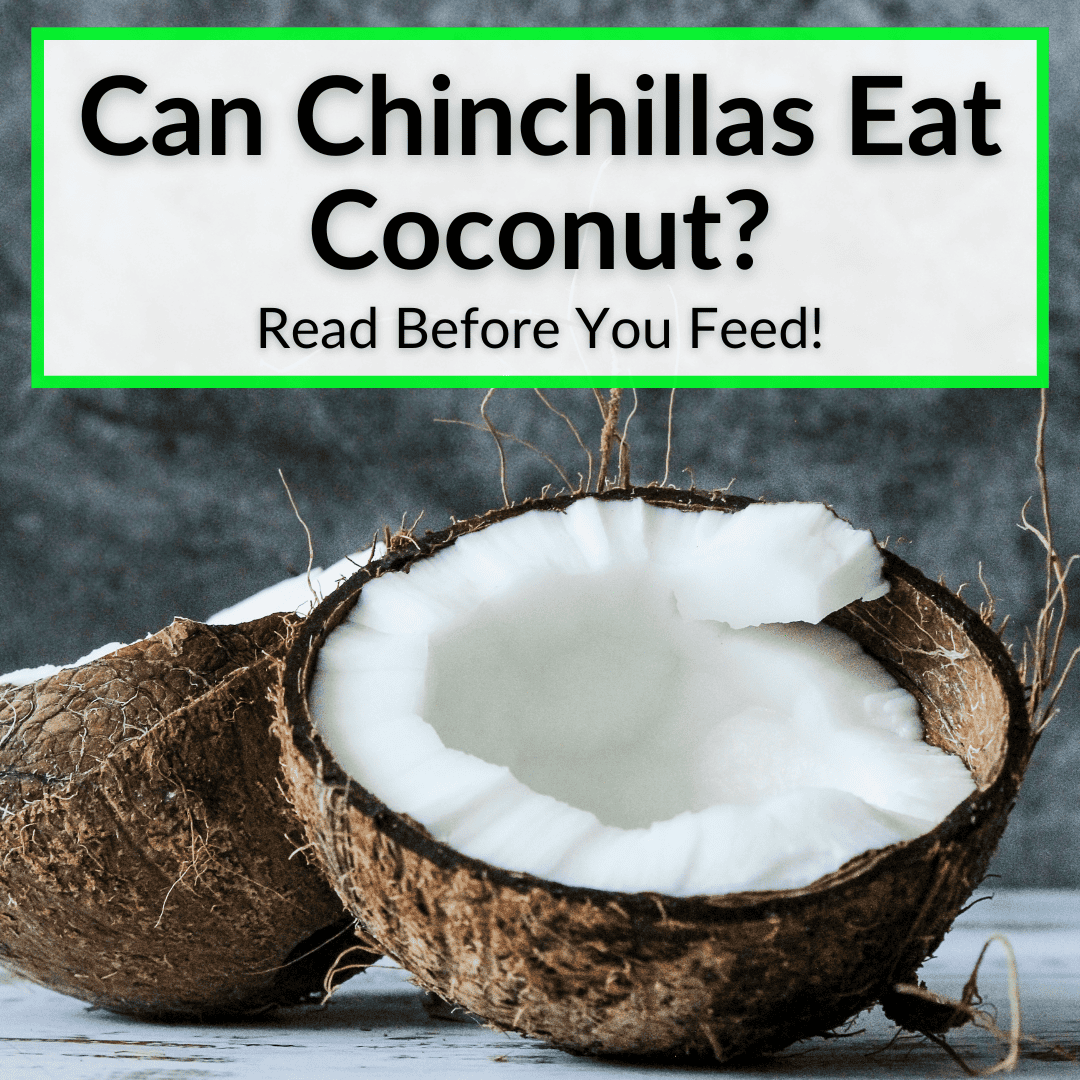
Coconuts come from the tropics. Hot and humid.
Chinchillas come from the Andes mountains in Chile. Cool and arid.
In the wild, no chinchilla would ever eat a coconut. But how about in captivity?
Can chinchillas eat coconut? Or is it off limits, like so many other fruits and vegetables.
It turns out, coconut is a bit different. You also have to look at all parts: the flesh, the husk and the milk.
Keep reading to learn if chinchillas can have coconuts. And if so, how much of it and how often can they eat it?
Contents
Can Chinchillas Eat Coconut?
Yes, chinchillas can eat coconut. It is perfectly safe for them, but only in small mounts. Like most fruit, coconut contains a lot of sugar and water.
Both water and sugar can create all sorts of problems for your tiny chinchilla, so you need to minimize how much of each they get. We’ll look at the risks of sugar and water below. First let’s look at come of the benefits coconuts provide for chinchillas.
Coconut Benefits
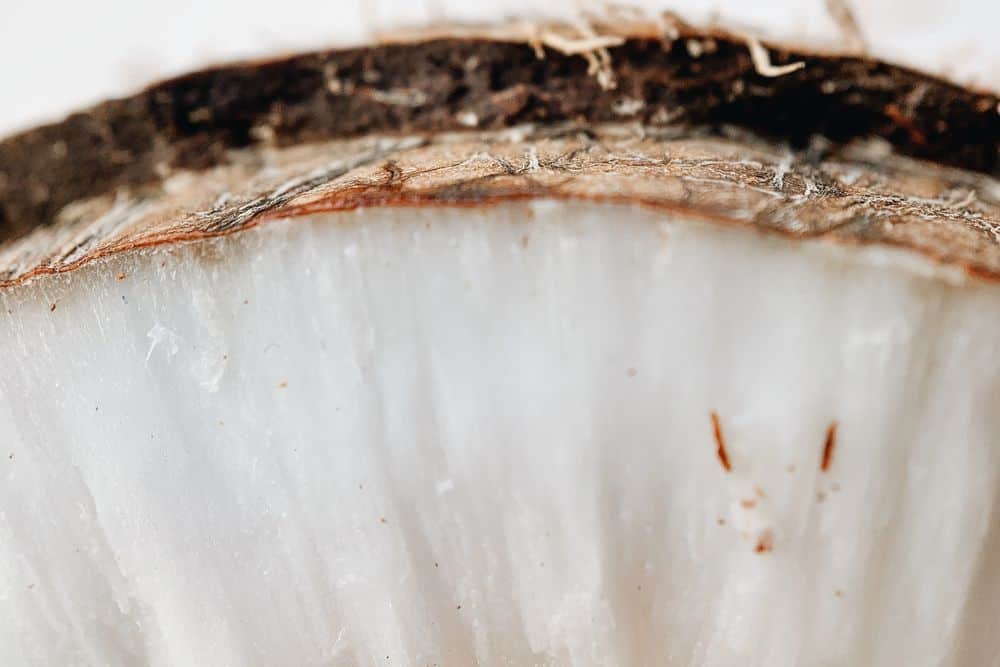
One advantage of coconut over many other fruits is that it actually offers some health benefits to chinchillas. Many fruits and vegetables that are healthy for us don’t give our chinchillas much nutritional value at all.
Coconut is high in fiber, of which chinchillas need a lot. It helps your pet’s digestive system. It’s also rich in vitamin C, potassium and magnesium and iron.
These vitamins and minerals will help to keep your chinchilla fit and healthy and its vital functions running in the best possible shape. Coconuts are also packed with lots healthy fats that will help give your chinchilla energy and also aid digestion.
But it is important to remember that chinchillas already get plenty of these nutrients, if you feed them a healthy diet of hay and pellets. That, along with the high water and sugar content, is why you should only feed small amounts of coconut to your chinchilla, even though it has so many health benefits.
Coconut should never be a regular part of your chinchilla’s diet. You should only give it to your pet as a small treat every now and then.
Coconut Risks
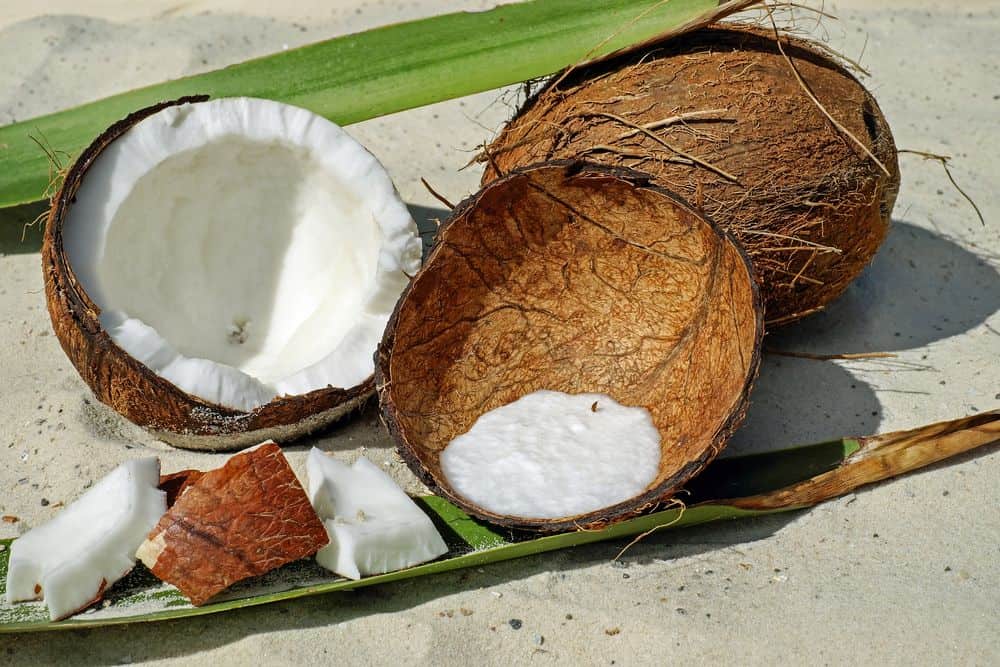
Even though coconut has its health benefits, if you feed too much of it (and too much for a chinchilla is not a large amount), it can also cause harm to your chinchilla.
The fruit has a high sugar content. Too much sugar, it can cause numerous health concerns for your chinchilla, such as weight gain, dental conditions, bloating and digestive issues.
Coconut also contains a lot of water. Chinchillas have evolved to need very little water, since they come from an arid climate. If they get too much water, their system can’t handle it and they start to bloat. This can lead to a number of serious conditions, including death.
You also want to make sure you cut the coconut into small pieces, because it can pose a choking risk for your chinchilla. Also, make sure you cut off any hard pieces of shell, since this also cause your chinchilla to choke.
Your chinchilla could even be allergic to coconut. Make sure to only feed a very small amount as a test at first. If you notice any irritations such as itching or digestive issues, you should stop feeding your chinchilla coconut entirely.
How Should I Feed My Chinchilla Coconut?
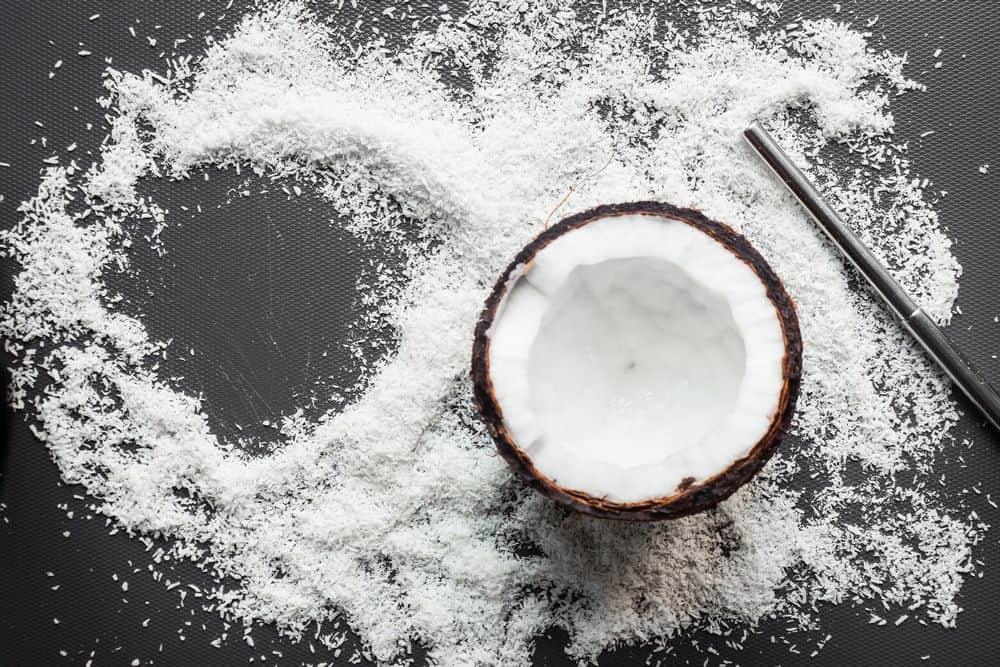
You should only feed small amounts of coconut to your chinchilla. Don’t feed more than a teaspoon once or twice a week. But it should not be one teaspoon-sized piece. As mentioned, cut it into several smaller pieces.
Again, make sure you only feed your chinchilla coconut as a treat, because it is too high in sugar, which can make your chinchilla unwell, if eaten on a regular basis. Limit the amount of coconut to one or two times per week.
I also recommend only feeding your chinchilla fresh coconut. It’s healthier for your chinchilla and does not contain any processed ingredients. Processed coconut foods can include coconut milk and flakes.
Can Chinchillas Chew Coconut Husks?
Coconut husks, or shells, can make a great chew toy for your chinchilla. Because they are hard, they can help your pet grind down its teeth. They are going to use something for that, and coconut husks are a good option,.
Your chinchilla will also love chewing on the coconut shell hairs. They have a unique taste and are easy to eat.
Can Chinchillas Eat Coconut Husks?
I would not recommend feeding your chinchilla coconut husks. They make great chew toys, but they could hurt your chinchilla if it were to swallow pieces of it.
Coconut shells are very hard and they could cause your chinchilla to choke, if they aren’t chewed properly. They could even cut your chinchilla’s throat on the way down.
Can Chinchillas Drink Coconut Milk?
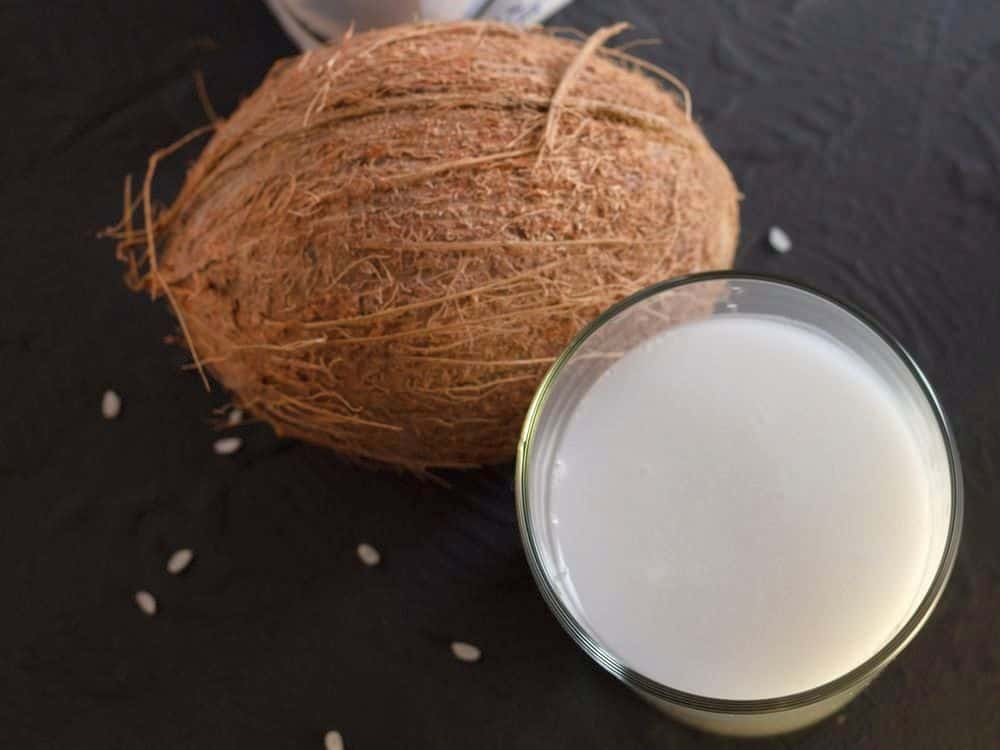
Coconut milk is a processed food, so I would not suggest feeding this to your chinchilla. It also has a high sugar content, which we have already mentioned as being a problem. If you want to feed your chinchilla coconut, it is best to stick to the flesh.
Can Chinchillas Have Coconut: Final Thoughts
Chinchillas can eat coconut, but like all fruits and vegetables, they can only have small amounts of it. This means no more than a teaspoon of small coconut pieces once or twice a week. And the husk can make a good chew toy, but not a food.
Coconut has a high sugar and water content, which is the reason chinchillas can only have a tiny amount of it. Too much sugar or water can both wreak havoc on this little rodent’s sensitive digestive system.
Leave a Reply